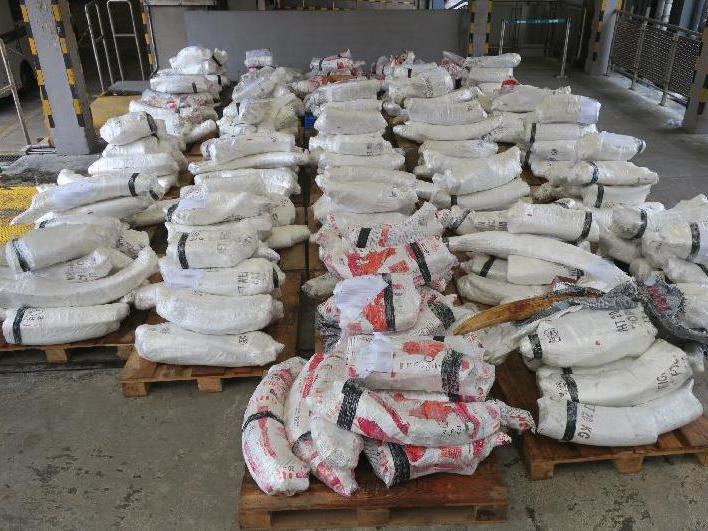Member of Hong Kong's endangered species board fined for ivory trading
Lau Sai-yuan pleads guilty to possession of illegal animal goods despite serving on environmental advisory committee in embarrassment for government

Your support helps us to tell the story
From reproductive rights to climate change to Big Tech, The Independent is on the ground when the story is developing. Whether it's investigating the financials of Elon Musk's pro-Trump PAC or producing our latest documentary, 'The A Word', which shines a light on the American women fighting for reproductive rights, we know how important it is to parse out the facts from the messaging.
At such a critical moment in US history, we need reporters on the ground. Your donation allows us to keep sending journalists to speak to both sides of the story.
The Independent is trusted by Americans across the entire political spectrum. And unlike many other quality news outlets, we choose not to lock Americans out of our reporting and analysis with paywalls. We believe quality journalism should be available to everyone, paid for by those who can afford it.
Your support makes all the difference.A Hong Kong ivory trader fined this week for illegal ivory possession sits on a government advisory group for protecting endangered species, records showed on Wednesday, potentially an embarrassing blow as Hong Kong fights ivory smuggling.
Lau Sai-yuan, a member of the Chinese General Chamber of Commerce and the Hong Kong Art Craft Merchants Association, pleaded guilty on Tuesday to illegal ivory possession and was fined HK$8,000 (£756).
His conviction came less than two weeks after China implemented a total ban on ivory sales in the country.
China is the world's largest importer and end user of elephant tusks. Wildlife activists called the ban, implemented at the end of 2017, a vital step towards reducing the slaughter of the endangered animals.
Hong Kong, a special administrative region of China, has lagged far behind and only set a timetable for a ban on ivory trading last year, with a phase-out time of five years.
Lau is listed on Hong Kong's Agriculture, Fisheries and Conservation Department's (AFCD) website as a member of its Endangered Species Advisory Committee. The membership terms run from 1 October 2016 until 30 September 2018.
Neither Hong Kong's AFCD nor the government responded immediately to requests for comment.
Alex Hofford, a wildlife campaigner for WildAid, a non-government wildlife organisation, said Lau should resign from his post.
“We believe that it would be highly unethical for Mr. Lau, a high-profile Hong Kong ivory trader and convicted wildlife criminal, to continue to serve out the rest of his term,” Hofford said.
Hong Kong is a prime transit and consumption hub with more than 90 percent of consumers from mainland China. It has the largest retail market for ivory, which it has traded for more than 150 years.
The former British colony adheres to regulations set by The Convention on International Trade in Endangered Species of Wild Fauna and Flora (CITES), which started to regulate the international trade of ivory in the 1970s and has banned such trade since 1990.
A Hong Kong government-led operation in June 2017 found that two ivory traders, including Lau, had sold ivory chopsticks with ivory obtained after the 1990 ban.
Only “pre-Convention ivory” is allowed to be traded when the ivory is accompanied by a pre-convention certificate.
The maximum penalty under current laws is two years in jail. Hong Kong lawmakers are considering a significant increase in penalties, with a fine of up to HK$10 million and imprisonment for 10 years.
Trade in pre-convention ivory has been thriving in China and Hong Kong since 1975. Environmental activists have long asserted that it has led to an increase in laundering ivory and remains a prime obstacle in eradicating the illegal poaching trade.
Reuters
Join our commenting forum
Join thought-provoking conversations, follow other Independent readers and see their replies
Comments